Nestlé’s long-term goals to support Vietnam’s regenerative agriculture
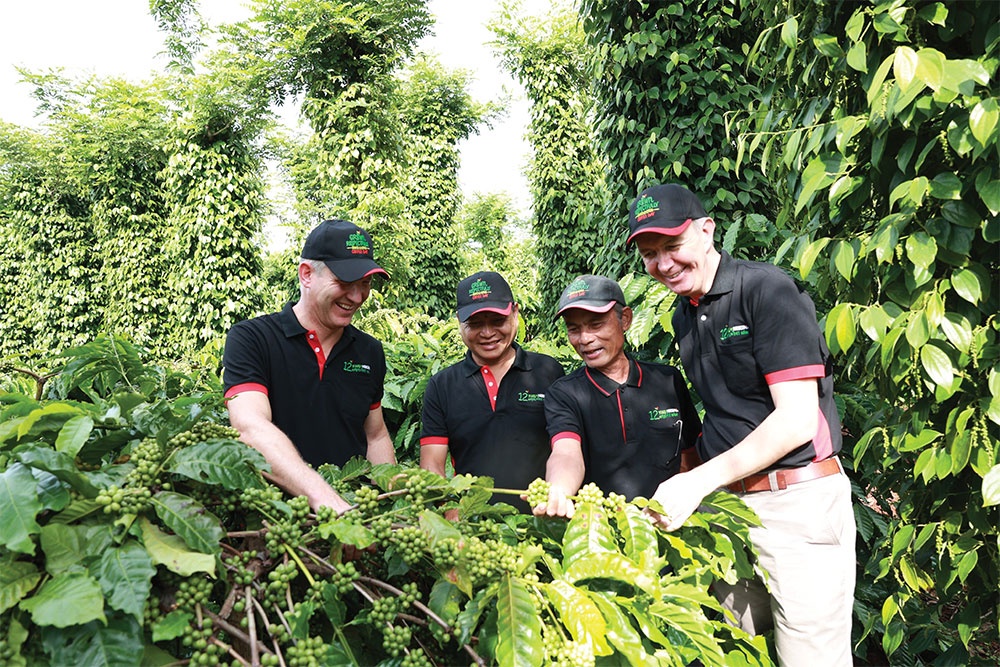 |
| It has been acknowledged that it may take some time to change the mindset of farmers as they facilitate the transition to regenerative agriculture. But groups like Nestlé have a team of experts with over a decade of experience that can convince and help Vietnamese farmers about the importance and benefits of such moves. Under its recently-extended Nescafé Plan 2030 programme, the company is making the commitment to fulfil targets that include halving its emissions by the end of the decade. These emissions will also be cut to 20 per cent in just three years, meaning Nestlé has had to implement genuine programmes, real pledges, and wide assistance for farmers and rural communities, including those in Vietnam, to help make these crucial changes. |
Could you shed some light on Nestlé’s efforts to promote regenerative agriculture and combat climate change?
Rennie: It is important to take immediate actions in the fight against climate change. Nestlé has been one of the first signatories to the United Nations’ commitment towards net-zero by 2050. In Vietnam, we’re also delighted to be working with the government, supporting Vietnam’s 2050 net-zero emissions goal announced at COP26. We are absolutely united in our ambition to achieve this.
If we want to make a difference, we must act immediately. To facilitate the goal, we have just launched Nescafé Plan 2030 with a focus on seven key origins, including Vietnam, from where our brand sources 90 per cent of its coffee. In this programme, regenerative agriculture is positioned at the heart.
Under the programme, Nestlé has made clear commitments to fulfil the emissions goals, including halving its emissions by 2030. We’re going to cut emissions from 20 to 25 per cent in three years, which is indeed a huge commitment. Therefore, Nestlé has to implement genuine programmes, real pledges, and assistance for farmers and rural communities including those in Vietnam to bring out the changes.
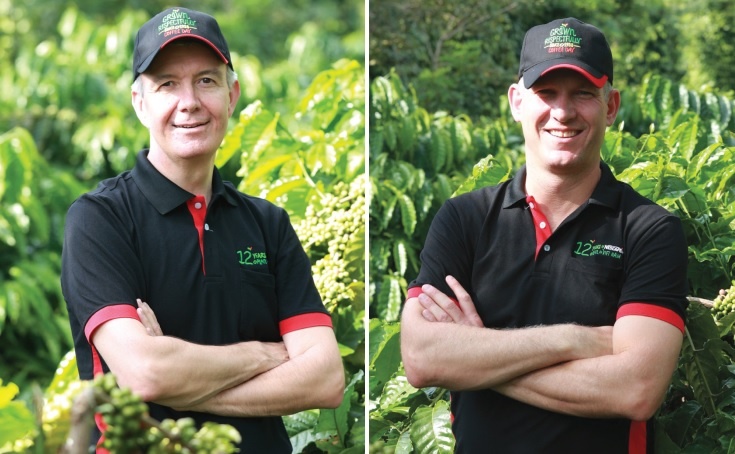 |
| David Rennie, deputy executive vice president and head of Nestlé Coffee Brands and Philipp Navratil, SVP and head of Coffee Strategic Business Unit at Nestlé S.A |
What is the role of regenerative agriculture under Nestlé’s net-zero roadmap?
Rennie: In the past, we discussed sustainable agricultural practices to reduce the harm to the environment. On the other hand, regenerative agricultural practices are about replenishing, nurturing, and working with nature for the long term to make farming and agriculture sustainable. It is focusing on harnessing nature, as opposed to fighting with nature. Specifically, regenerative farming methods contribute to improving soil health by retaining moisture and nutrients in the soil.
The method also adopts smart irrigation to water coffee plants at the right times. Meanwhile, farmers can integrate with alternative crops that protect the coffee and give them additional income. They can reduce the need for artificial fertilizers, which are a major contributor to carbon emissions.
Thanks to these farming practices, regenerative agriculture contributes to drawing down carbon dioxide from the atmosphere and reducing greenhouse gas emissions. Therefore, we consider regenerative agriculture at the very heart of Nestlé’s net-zero roadmap.
What are the key focus areas of the Nescafé Plan 2030 to drive this transformation?
Navratil: Nestlé has 12 years of a proven record of implementing the Nescafé Plan 2030 in Vietnam. We have been building a lot of knowledge for farmers by hand. We also trained them in agricultural practices, distributed high-yield and disease resilient coffee plantlets, and brought financial literacy to them to manage their farms.
With regenerative practices, we not only increase soil health but also take care of biodiversity and the watershed. We believe that by protecting nature and giving back to nature, in the long term, the farming profitability and output will increase.
Another key area is that we aim to improve all sorts of conditions around the farmers and their farming communities, especially increasing their income. So, regenerative agriculture is the solution to gain those benefits. We will offer more support to help farmers switch to regenerative agriculture.
What is the most difficult challenge for Nestlé when implementing regenerative agriculture in Vietnam?
Navratil: It will take time to change the mindset of farmers to facilitate their transition to regenerative agriculture. We have a team of experts with over a decade of experience in the field to convince farmers about the importance and benefits of regenerative agriculture. Firstly, farmers will experience a slight dip in their profitability or in the yield of their farms. However, for the right reasons, farmers will gain more benefits eventually.
Nestlé has the plan to offer incentives to help farmers financially transition into regenerative agriculture. This is crucial as farmers might jump out of the programme if they don’t see the results immediately. Meanwhile, we need to do to make them part of the programme by spreading the news to their colleagues and other farms.
Moreover, Nestlé continues to partner with the Vietnamese government, the Ministry of Agriculture and Rural Development, and the Western Highlands Agriculture and Forestry Science Institute to bring changes. Public-private partnerships are important for us to speed up the transition to regenerative agriculture.
We will work towards convincing farmers and all relevant stakeholders, including the government and other companies, that regenerative agriculture is a practical solution for sustainable development to protect the environment and combat climate change.
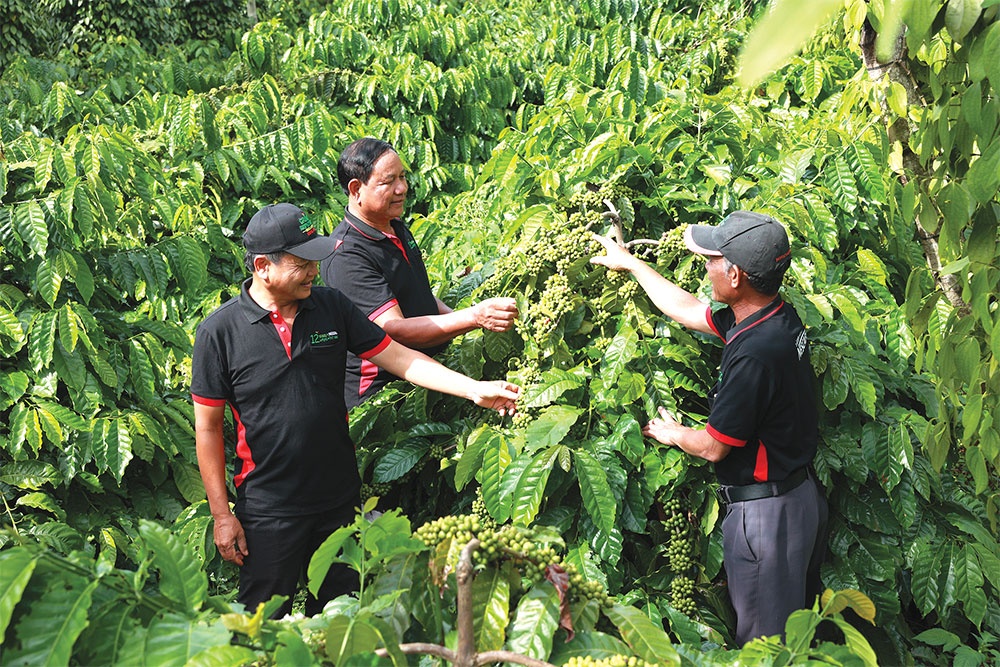 |
| The Nestlé team is working hand-in-hand with Vietnamese stakeholders in boosting regenerative agriculture |
How do you see regenerative agriculture will be welcomed by consumers?
Navratil: Leading back to why we are pursuing regenerative agriculture is sustainability. The pandemic made us face risk in everything that we want to do on the whole. Consumers we talk to all say that they are concerned about packaging made with plastic or paper. Some say they prefer paper to plastic because they know it’s better for the environment, but there is no common concern.
Sustainability plays an important role to drive consumption. It’s not just sort of nice to have – I believe for a brand like ours, if we’re not sustainable and regenerative, we will not have success in the future. Hence, we need to act to ensure commitment to sustainability and resilience.
What is your evaluation of Nestlé Vietnam as a growth catalyst for your group worldwide?
Rennie: Coffee is such an important aspect of what we do in Vietnam, from green coffee to finished coffee. However, beyond coffee, Vietnam is a country with huge potential. The young and dynamic country has a clear view of what it wants, as well as a plan to get there.
That’s why we’ve been in this market since the early 1990s, and we’re always supportive of that journey. We’re very proud to be a part of the Vietnamese community to help with employment for hundreds of thousands of people directly and indirectly in Vietnam. Besides this, I think Vietnam has an important role for Nestlé, as it’s our single biggest source of coffee globally.
To be more specific, last year, we invested $132 million in Vietnam which was off for the investment against many other places in the world, but the country still won the deal because of the success of local businesses and factories. Therefore, we are happy to continue to invest in Vietnam.
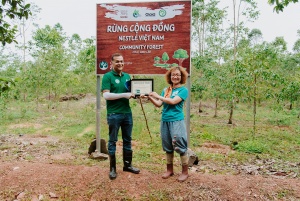 | Nestlé Vietnam plants forests to mitigate climate change impact On the occasion of World Environment Day on June 5, Nestlé Vietnam’s employees and environmental ambassadors have partnered with Gaia Nature Conservation Center to organise the reforestation activity Sow Green Seeds – Nurture Life to raise awareness and contribute to mitigating the impact of climate change. |
 | Nestlé and Starbucks roll out Starbucks At Home in Vietnam Nestlé and Starbucks on July 18 introduced a new coffee experience called Starbucks At Home in Vietnam that includes a premium instant coffee range with four signature flavours. |
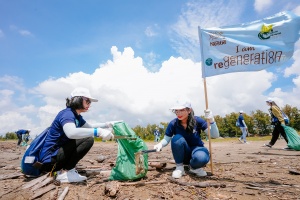 | Nestlé Vietnam joins beach clean-up to reduce ocean plastic waste For World Cleanup Day 2022, a total of 200 Nestlé Vietnam’s staff volunteered to collect waste on a beach in Can Gio district, Ho Chi Minh City. Nearly 1.5 tonnes of rubbish was collected in just half a day. |
 | Nestlé Vietnam shares experience in sustainable development As a pioneer in sustainable development, Nestlé Vietnam recently shared its efforts and strategies to promote sustainability in Vietnam. |
What the stars mean:
★ Poor ★ ★ Promising ★★★ Good ★★★★ Very good ★★★★★ Exceptional
Related Contents
Latest News
More News
- SK Innovation-led consortium wins $2.3 billion LNG project in Nghe An (February 25, 2026 | 07:56)
- THACO opens $70 million manufacturing complex in Danang (February 25, 2026 | 07:54)
- Phu Quoc International Airport expansion approved to meet rising demand (February 24, 2026 | 10:00)
- Bac Giang International Logistics Centre faces land clearance barrier (February 24, 2026 | 08:00)
- Bright prospects abound in European investment (February 19, 2026 | 20:27)
- Internal strengths attest to commitment to progress (February 19, 2026 | 20:13)
- Vietnam, New Zealand seek level-up in ties (February 19, 2026 | 18:06)
- Untapped potential in relations with Indonesia (February 19, 2026 | 17:56)
- German strengths match Vietnamese aspirations (February 19, 2026 | 17:40)
- Kim Long Motor and AOJ Suzhou enter strategic partnership (February 16, 2026 | 13:27)

 Tag:
Tag:




















 Mobile Version
Mobile Version